SITE INDEX
Top of Page
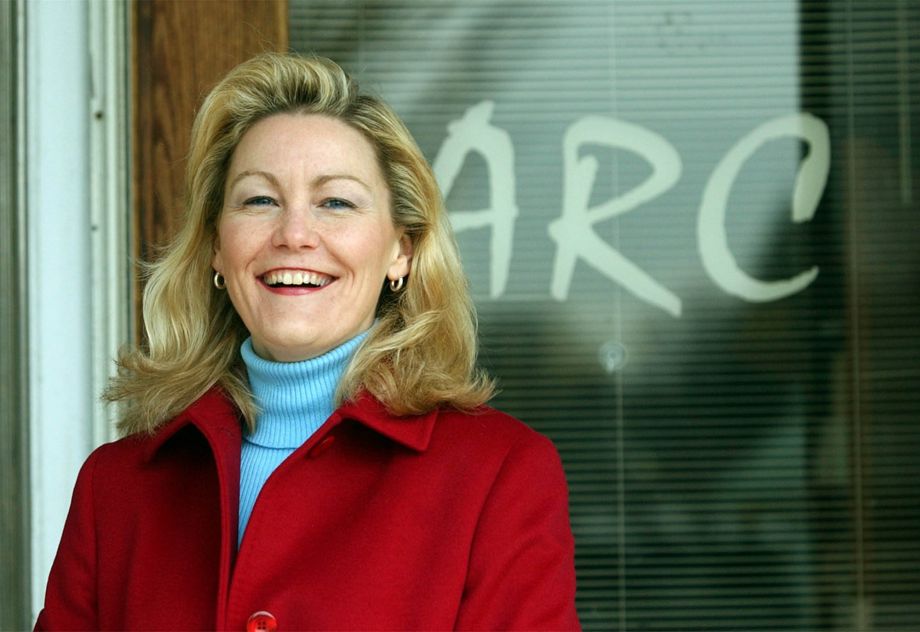
Rev. Phyllis J. Leopold
FORUM ON FAITH
"Almost" an underlying theme in Advent and Christmas season.
by Rev. Phyllis Leopold
Published: December 19, 2015
Danbury News Times
Almost. I "almost" had a bad car accident on the way to the office recently.
I was slowly driving up a winding road when a pickup truck came around the sharp curve going fast and way outside its lane. At the last second, the truck swerved back in its lane. How differently things could have been if there truly was an accident, instead of an "almost."
This time of year, "almost" is an underlying theme for me. I laugh with loved ones as we brag that we have all our presents bought and wrapped, and then honestly admit, "well. . . almost." Ditto on cards and baking. It's all done "almost."
The best part of the Advent and Christmas season, the sacred story, is also rooted in "almost."
Mary and Joseph were engaged and not quite, but "almost" married. And while I like to think there was, as the hymn says, "Joy to the World," the fact is the Bible says very little about the birth of Jesus. There's only a couple of chapters. It is as if "almost" no one noticed.
The birth of Jesus would mean very little to me were it not for what the Gospels say about his adulthood and the ways of life he modeled for disciples.
Those books tell of miraculous healings and also that Christ performed these miracles for the people in his day who were not from the mainstream. The Gospels tell of prayers that Christ taught people who were not members of the dominant faith. The Gospels tell of good deeds and almsgiving that Christ did for one person after the next who were considered low lifes and looked down upon by most circles.
The people whom Jesus worked with in his adulthood were almost always people who were on the margins.
He worked to empower women, children, and men who were mentally or physically challenged. But he did not stop there. He also engaged people of high position and power to re-think their role in society. It was for both of these sets of people, the haves and have-nots, that Jesus performed his ministry and brought important news from the other side: news of there being a different and better world.
Jesus described it in four little words: "the Kingdom of God."
I think of those four words during the season of Advent and Christmas.
Jesus was born and gave his life for that kingdom. He did radical things to advance it. He got pretty far. But not all the way. He left some of it for us - imagine that.
After Thomas Edison made the first lightbulb, he handed it to a child. But before the child got the lightbulb to its destination, the child dropped it. Edison made a second lightbulb and the person he chose to present it to the world was none other than the same child. Imagine!
In a similar way, I appreciate the Advent and Christmas season for its testimony to how much faith God has in humankind. For the way it witnesses how far God will go to help us even when we mess up and, so to speak, drop lightbulbs.
The sacred stories of Advent and Christmas make me pause and ask how can I do better? Even during sad years, there is new hope that a better world awaits.
The Christmas story is great to me not just because it's about God coming into the world as a human baby (which is pretty spectacular in and of itself); but what I like is the invitation to become part of the story of redemption.
I liked believing there was a Santa when I was a child, and I would not deny any child the joy and fun of anticipating Santa's arrival. But there comes a point when that bubble burst. Santa has no more sway or power over me. So I'm not inclined to fret about the impact of Santa - nor commercialism, nor keeping the word "Christ in Christmas," nor fighting over saying "Merry Christmas" or "Happy Holidays."
Of much greater interest to me is the invitation to participate in the Kingdom of God and making the world a better place for everyone we possibly can, and especially people outside of our usual circles. Imagine!
The Rev. Phyllis J. "P.J." Leopold, Executive Director, The Association of
Religious Communities (ARC), 325 Main St. Danbury, CT 06810, 203-792-9450.
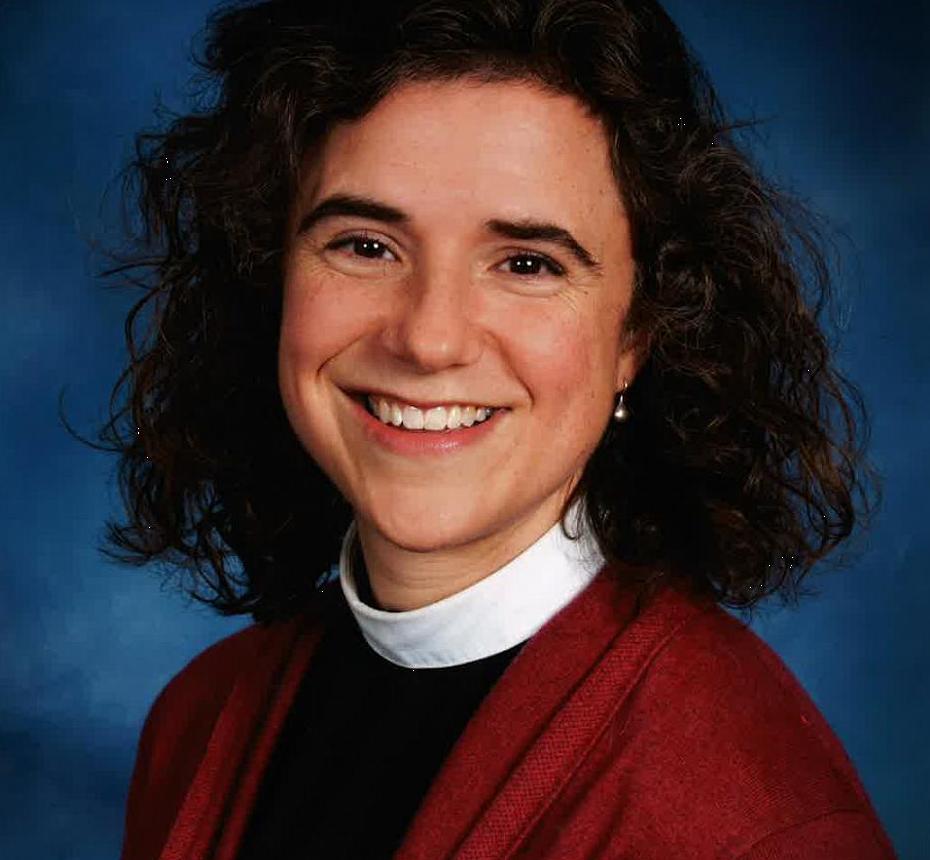
Rev. Whitney Altopp
FORUM ON FAITH
Generosity spreads the spirit of Santa.
by Rev. Whitney Altopp
Published: December 5, 2015
Danbury News Times
"Mommy, is Santa Claus for real?" Each of my children remembers where they were when they got up the nerve to ask me this. I only remember feeling uncertain of what to do with the weight of the question. How could I answer truthfully while still keeping the childlike wonder of grace and generous love?
And that is when I remembered St. Nicholas! St. Nicholas is recognized as a saint by many Christians around the world.
As Episcopalians, we celebrate St. Nicholas on December 6, along with the Roman Catholic and the Greek Orthodox Church. St. Nicholas was a bishop of Myra in the early 4th century. Although prominently known as the patron saint of sailors, he is uniquely remembered for giving gifts in secret.
One illustration of his generosity is that he provided the dowry for three daughters of a poor father, thus securing the girls future. As each daughter came of age to be married, St. Nicholas left a bag of coins at night so that the father found them in the morning. When people celebrate the Feast of St. Nicholas on December 6, they often give a bag of gold candy coins.
When I was in seminary at The General Theological Seminary in New York City, we celebrated the Feast of St. Nicholas as a community. After evening worship, the entire community - staff, faculty, and students, and our families - came together for a meal that was set out in English fashion. A table of sweets rivaled what you might see in a Victorian-era painting.
At the end of dinner, Santa Claus came to visit. He looked a lot like our modern day Santa. We would get the children seated around Santa's empty chair and we would wait. Soon he came in carrying a large bag over his shoulder.
I remember one year when Santa's deep, dark brown skin could just be seen underneath the long flowing white beard. The delight on the children's faces whose skin matched his was one of overwhelming wonder! "Could it be?!" they seemed to ask. "Look! Santa looks like me!"
No one dared get too rowdy, because Santa had just entered the room. The children sat in great anticipation as he would pull a present from his bag with one particular child's name written on it and call them forward to receive it directly from his hands. For the four years that I was in seminary, if you asked my pre-school aged children what Santa brought them at Christmas any time after December 25, they would only mention the one present they received from Santa himself on that Feast Day of St. Nicholas.
So, when my kids asked me "Is Santa for real?" I found myself answering, "Well, kind of." I found myself saying that St. Nicholas was real. And it was because of his generosity to the vulnerable, to children in particular, that we look to be generous at Christmastime. Santa Claus is named after St. Nicholas.
We've striven to remember the generosity to the vulnerable when we remember our wish lists for Santa. Every year, we invite our children to get a gift for a child in need. One year Santa brought a "gift in kind" to each of our children: a purchase of an animal through Heifer Project International.
Usually, I try to demonstrate generosity by putting a few loose $1 bills in my pocket when we go into an area where we know that people will have a cup out, asking for help. We give away the few dollars in our pocket until those dollars are gone.
This year, I hope that we give a gift in kind to the Episcopal Diocese of Jerusalem, whose patron saint is St. Nicholas. The Episcopal Diocese of Jerusalem ministers to the needy in Syria, Lebanon, Israel, Jordan and the West Bank. We know from the news that there are many vulnerable and needy people in those areas.
I guess my final answer to my children is "Yes. Santa is real. He is real whenever we act like St. Nicholas and give a gift for the sheer joy of giving, whenever we remember the vulnerable and the needy and realize that a few small coins may not change the world, but they can make a world of difference for that one person."
The Rev. Whitney Altopp, Rector, St. Stephen's Episcopal Church, 351 Main St., Ridgefield, CT 06877. She can be reached at: waltopp@ststephens-ridgefield.org Tel: 203-438-3789
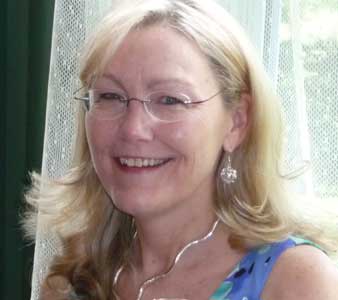
Rev. Phyllis Leopold
FORUM ON FAITH
Be thankful for causes of spiritual growth.
by Rev. Phyllis Leopold
Published: November 21, 2015
Danbury News Times
Giving thanks. It's not only the theme of an upcoming holiday but also a major principle in every world religion.
As a person of the Christian faith, the biblical story of giving thanks that has always mesmerized me is the story Jesus tells of "The Ten Lepers." Accordingly to Luke's Gospel, there are ten lepers and Jesus heals all of them. But it is one and only one who returns to Jesus to say, "Thank you."
Alanis Morissette has a thank you song with lyrics that I think are terrific. She sings:
Thank you disillusionment!
Thank you frailty!
Thank you consequence!
I don't look forward to disillusionment, frailty, or consequence. But I believe they truly have their place. In my experience those things can produce great personal, social, and spiritual growth.
I remember when I was in divinity school there was a popular television commercial for Coke (or was it Pepsi?) where one person and then a host of people would sing "I'd like to teach the world to sing, in perfect harmony." What an ambitious goal! Imagine the world singing in "perfect" harmony!
I enjoyed watching that commercial whenever it came on. Amid the heavy theology books, I thought that commercial had a pop culture way of capturing the future. I can barely carry a note. But in my own way, I thought my call to ordained ministry was, so to speak, to help teach the world to sing. And yes, in harmony!
Then came my first appointment to be a minister of a church. What I walked into was a bunch of divisions between several church leaders, a shortage of funding, and a crumbling building. For a young, starry-eyed minister it was not what I had expected.
It seemed so far, far away from that heart-racing call to help "teach the world to sing." Or in the words of Alanis Morissette, it was quite the "disillusionment."
But a decision was made at that troubled church for us to work to identify and heal the wounds, and get beyond them to start a new chapter in good ministry. Within 12 months, all members who had dropped out came back and dozens of new members joined the church.There were babies getting baptized! Youth getting confirmed! We raised sufficient funds to support the church and community services! Plus, we had a capital campaign to restore the entire outside of the church.
That experience not only helped the church, but it also helped my own spiritual journey.
It helped me to "break through the disillusionment," the idea that being a church minister was always going to be a glorious journey. The experience gave me a new sense of self and a better understanding of the complexities of people, even "church people."
I like to see God's spirit at work in sunny days, in pretty flowers, and good quotes. But I also deeply believe God is there in the complicated times and in the chaotic messes.
I believe God smiles for all who will indeed have a Happy Thanksgiving, and I also believe God is with us even when there is an "empty chair" at the thanksgiving table or any kind of emptiness in our lives.
The lepers that Christ healed were people who lost parts of their bodies, a little at a time: a finger, a nose, a toe. How awful it must have felt after each loss. It is also amazing that nine out of ten people did not have the manners or decency to be thankful for their healing and new life.
Yet, one person did.
And sometimes one person is all it takes to keep a good message going. For people who share our joys, and also for people who help us to break through our disillusionments, O God, I am very thankful.
Rev. Phyllis J. ("P.J.") Leopold, Executive Director, The Association of Religious Communities, 203-792-9450.
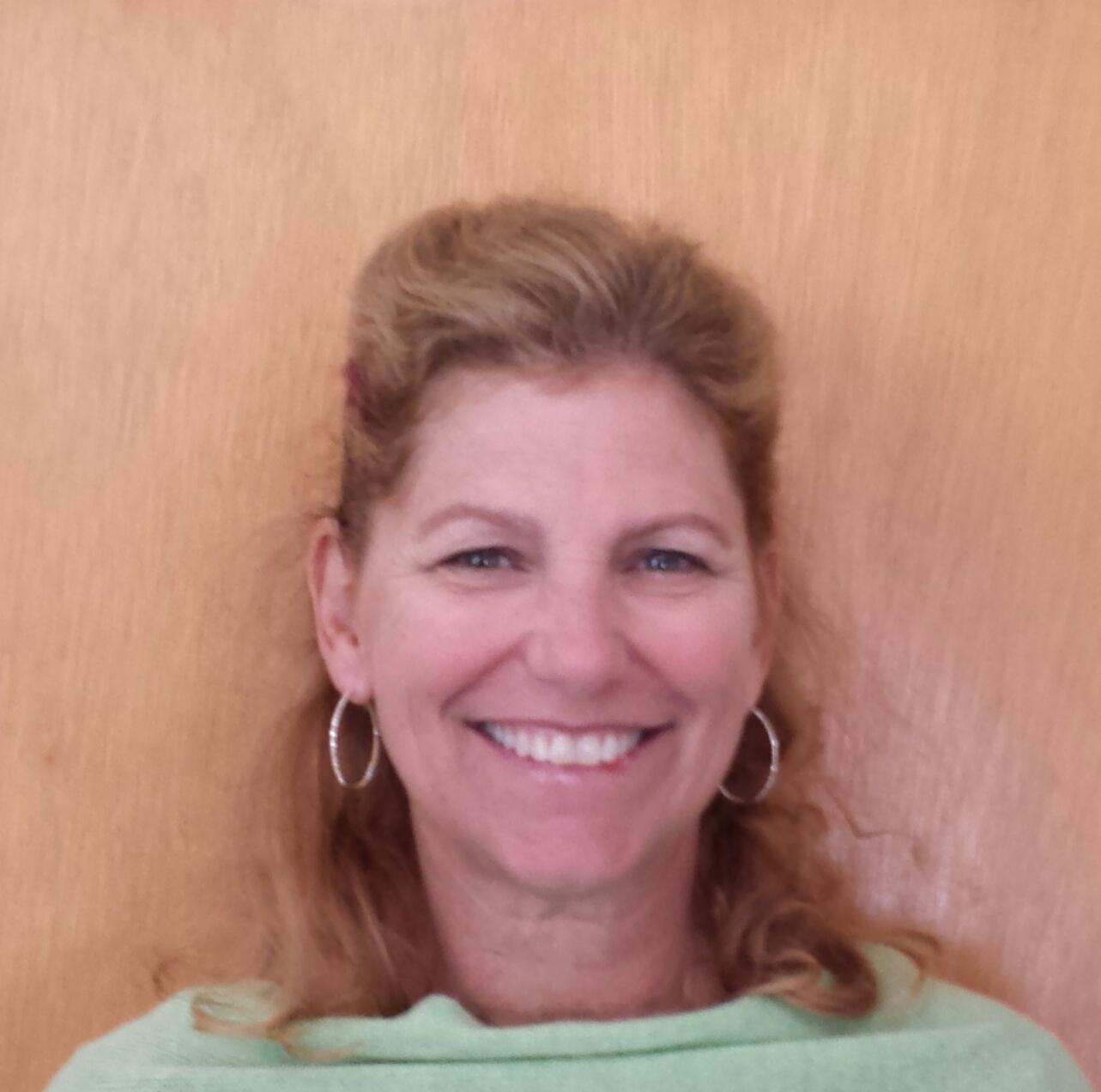
Lisi Marcus
FORUM ON FAITH
Spirituality runs deeper than religion.
by Lisi Marcus
Published: November 7, 2015
Danbury News Times
Being spiritual and being religious may run parallel lines, but for many people, these two belief systems do not intersect.
In a 2013 Pew Research Center report, one in five Americans identified themselves as "spiritual but not religious." That report was one of several things that made me wonder: Do we have to be one or the other in order to connect to the sacred?
As a lifelong member of a local synagogue, I have attended religious school, become a bat Mitzvah, been confirmed, gotten married by clergy, been a board member and participated in many aspects of congregational life. Generally, I have not found spirituality during regular services inside the walls of the institution.
When I think of being spiritual, I do not think of being connected to religious doctrine. Rather, I think of being connected to my vision of God, the soothing feeling one gets when witnessing the beauty in nature, as well as taking action and facing responsibility, which makes my community a better place in which to live, and therefore, makes me a happier person.
Being spiritual is to realize the mind, body and spirit are all gifts from God. I want this triad of ideas to help me see the goodness in life and be in harmony with each other.
Recently, a member of our congregation was called to the "bima" (altar) to recite the "berachah" (Hebrew for blessings) before and after the Torah reading. This is a tradition that begins when young boys and girls turn 13 and are first called to the Torah. The honor of performing the blessings is repeated often throughout a lifetime.
For our congregant who is turning 100 years old, this honor might have been a spiritual moment. He ascended the stairs to the bima - a symbol of strength, honor and tradition. I was happy to be part of that moment. It reflected a different form of spirituality - like in the beauty and abundance of God's creations, much like the sunsets I love.
Sunsets happen every day, everywhere. I have been fortunate to see them in many places throughout the world. From mountain tops, over oceans, and most recently, above the African plains. They are all magnificent, and for me, they embody the spirituality of the moment. This connects me with the sacred.
Watching a sunset provides an instant of stepping back and witnessing the way the human spirit can have a connection with the greater world. It is an instant for me to acknowledge the gifts of God. It is awesome.
As the sun gradually sinks behind the horizon, my vision is expanded. It grounds me but also lifts me. It helps me separate the petty from the profound. Sometimes it is a moment to stop and think. Other times, I just absorb the tranquil moment.
One way or another, it can be transformative. Long before organized religion entered our continent, many Native American tribes worshipped the sun, as did many other ancient cultures of the old world. I can understand why.
When I asked my friend, Cantor Penny Kessler, about spirituality and religion, she explained her view of the differences. She said religion is a system of guidelines and tenets, while spirituality is "kavannah," the intention one develops, sometimes through a specific religion, sometimes not. She and I agree one can be religious and not spiritual.
She wrote a beautiful haiku as a brief explanation of spirituality:
Higher power. God.
High and better self. Jew.
Connect to other.
I like this haiku as a way to remember the connection we have with a higher power. To some of us that "higher power" might mean God. This verse is a way to remember we have an inner voice, which gives us strength, and our faith may make that an even more powerful link.
Our 100-year-old congregant has reached a significant milestone, and one that is worthy of sharing. I will be attending a party in his honor and thinking it is truly a spiritual event.
I wonder how many times he has been called to the Torah or how many sunsets have called to him.
Reflect, rejoice and renew each day. There will be another sunset tomorrow.
Lisi Green Marcus is a member of the United Jewish Center in Danbury. She can be rached at lisimarcus@att.net
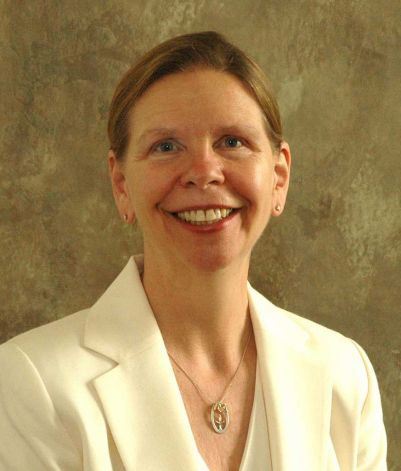
Rev. Barbara Fast
FORUM ON FAITH
Interfaith conversations help spread peace.
by Rev. Barbara Fast
Published: Saturday,October 17, 2015
Danbury News Times
Folks ask me sometimes why interfaith dialogue and respect matters so much to me. I think it goes back to an experience I had when I was about 10 years old.
When I was a girl in the Bronx, at the end of summer before school started, I built what we called a soap box "racer" with my school friend, Beth. It was made of some old boards we found, and a peach crate, and some wheels from an old baby carriage - but it rolled and we were proud of it.
We went to the same public school and lived in the same apartment complex. I was Roman Catholic and went to weekly instruction at my church. Beth was Jewish and attended her synagogue.
One Saturday afternoon, we decided to take our summer reading books back to the library. Since we had many books, we piled them onto the racer - and then we rode and pushed it to our destination. As we passed a playground, I noticed some older boys playing basketball.
The next thing I knew they were running toward us. They surrounded us, pulled us off the go-cart, threw our books into the street, and started screaming at us.
At first I could not understand what they were saying, and then I understood. They were screaming "Dirty Jews!"
I don't remember being afraid. It happened so fast! It was so incongruous. This was New York City, and around 1961. What was going on?
It seemed stupid to me. And inaccurate. I stood there and yelled back, "Stop it!" sure that my voice would snap them out of their frenzy. Finally I yelled, "But I'm not Jewish!"
Now, I am not proud of that statement. Beth was my friend. Then, my intention was to shield both of us. Now, I think I abandoned Beth in that moment.
My dad had served in the war in Europe. I knew about the Holocaust. But I didn't live as if I knew. The words shouted by those boys were different for Beth. They had a terrifying history and a menace I did not understand.
Those boys were filled with hate. Where did it come from? It was the early '60s. It was a time of great changes that were unsettling for some. Whatever its source, their hate did not heed logic. After kicking our books around, they ran out of rage and ran away.
The cart was a mess. The library books were dirty and bruised, and we were too. Not physically, but spiritually. I felt outrage. Beth and I ran the books to the library.
We breathlessly told the librarian that we did not damage the books, that a bunch of boys did it. She asked no questions. She made no eye contact. We did not tell her what names they called us.
The next week, I saw one of the boys in the hallway of the parochial school I attended for Wednesday afterschool religious instruction. Needless to say he was startled, afraid - and he ran off. I did not tell on him.
Some things change. Some things remain the same. The human heart is a strong muscle.
Now I love the values of the faith of my girlhood, the traditions of Abraham, the wisdom of world religions, the deeds of people of good will. I strive to reject the differences we attribute to people.
For me, the seeds of inclusion, planted in me, must be nurtured to grow. Silence is not an option.
We have a rainbow flag on our congregation's property. It was burned twice in the past 2 months. No one has taken responsibility for it.
Whether it is an adult or a youth, it is an act of intolerance at best, possibly a gesture of hate. It is a seed that cannot be allowed to be grow in this community. I thank all who have come to our aid and support.
It matters what we teach our children - at our dinner tables, in our classrooms, in our homes, in our houses of faith, on media screens of all kinds. Community values are powerful. It matters how a community responds to acts of hate.
I knew as a girl that sometimes people don't want to know the shameful behavior that goes on next door or down the block. I didn't speak up back then. Now I do.
If we are to live together in peace and plant the seeds of peace in the hearts of our children, we must be able to gather and talk about difficult things in peaceful ways.
The Rev. Barbara Fast is the minister for the Unitarian Universalist Congregation of Danbury. She can be reached at 203-798-1994 or minister@uudanbury.org.
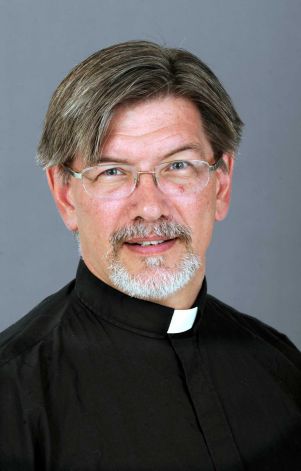
Fr. Luke Mihaly
FORUM ON FAITH
Holiness is present throughout our lives.
by Fr. Luke Mihaly
Published: Saturday,October 3, 2015
Danbury News Times
A group of us traveled to Greece this August and visited many holy sites. We went to monasteries of recent saints canonized by the Orthodox Church. We prayed before their relics, their very bodies, which we revere as living temples of the Holy Spirit.
I felt there was something - no, someone - present at all these places.
From the moment we entered each site - from St. Nectarios' monastery on the island of Aegina to the monastery of the Venerable Loukas, whose relics were 1,100 years old, to the tomb of St. Nahum in Macedonia - I felt a real and tangible Holy Presence.
I remember experiencing such a presence years ago at St. John's Orthodox Church in Stratford where my grandfather was a priest.
Serving as an altar boy, kneeling at the moment of the consecration of the bread and wine, I looked at my grandfather and there was an intensity on his face as he was praying, talking to Someone, but I could not see who it was.
I could sense the holiness at this moment in time, something in my grandfather's face, but it was elusive, like trying to grab hold of a cloud.
I could see something; I could sense it, but I could not hold on to it or explain it.
What is most comforting and amazing to me is our Christian affirmation that this Holy Presence is Christ.
The Person I was sensing on our trip last month is the same Person I first recognized in my grandfather's church all those years ago.
It was the same experience of holiness that I saw in my grandfather's eyes and witnessed as a young altar boy.
Little did I realize when I was a boy that I would be spending my life searching for and discovering this Person to whom my grandfather had been praying.
Since the day my grandfather baptized me as a baby, I learned I was united to this Person, Jesus Christ. And my faith taught me that throughout my life, Christ was with me always, even if I didn't always recognize it.
Throughout my life, there have been other moments when I have sensed a Presence, a sacredness, that I now know and name as Christ being there - when I was married, at the birth of my children, at my ordination, when I baptized my grandson, and at my son's ordination.
It has been a great comfort and confirmation of my faith to experience in those moments the presence of Christ.
So often, I think we sense these experiences as a good day - perhaps as we get the simple gift of a beautiful sunrise or sunset.
Or perhaps we chalk something up to good luck, if we have a close call or a near accident.
But I believe these are moments that God - in Jesus Christ, Who became man for us - is calling to our hearts to recognize Him in our Lives.
I believe it is this same God who desires more intimate relationship with us.
On the night before my father died, he was taken to the Hospice Center in Branford. I was there praying and was unsure as to whether I should stay or not.
My brother, also a priest, was with me and we sang a short service to the Mother of God and anointed my father with the myrrh from a weeping icon.
The entire room filled with the fragrance of the oil. The fragrance filled the room, overpowering any other odor that was there. A deep and clear sense of the presence of God and His Mother was there.
For my dad, I knew then and there that everything would be all right. Not that my dad would somehow miraculously be healed. But that he was in God's hands and that there was no better place for him than in the loving care of Him Who loves him more than I ever could.
Throughout my life, my faith has offered this consolation and confirmation that God is always with us - the same Christ I met while I was a small altar boy is the same Christ Who was at my wedding, the birth of my children and my ordination.
And most recently, was the same Christ we encountered in those sacred places in Aegina, Greece and Macedonia.
I believe this Christ continues to be there, calling me, calling all of us, through all our lives, to an ever deeper relationship with Him.
Fr. Luke Mihaly, Holy Trinity Orthodox Church, 74 Joes Hill Road, Danbury, CT 06811. He can be reached at (203) 748-0671.
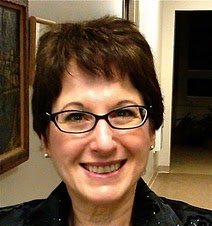
Cantor Penny Kessler
FORUM ON FAITH
Sukkot reminds us we are dependend on God.
by Cantor Penny Kessler
Published: Saturday,September 19, 2015
Danbury News Times
Imagine a holiday similar to Thanksgiving, a festival that celebrates the fall harvest but with a unique twist. In addition to offering thanks, there is an acute awareness of how fragile the world really is, how absolutely dependent we are on our Creator.
Sukkot is the Fall Jewish holiday that begins five days after Yom Kippur. The Torah (Lev. 23:24) sets the Festival as being " . . . on the 15th day of the seventh month, a Feast of Tabernacles to God for seven days." (Note: Sukkot is celebrated for seven days in Israel and by Reform congregations and for eight days by Orthodox and Conservative congregations outside Israel. My congregation observes seven days.)
Sukkot is the plural of the Hebrew word sukkah, a temporary hut or dwelling. Originally an agricultural holiday, Sukkot (Hebrew: booths) reflects the Biblical harvest times when workers would spend their harvesting time in makeshift huts, erected in the fields during the harvest and then taken down at the end,
Sukkot is also associated with the Israelites' wandering in the desert for 40 years. Again, to quote the Torah, (Lev. 23:42-43), "You shall dwell in booths for seven days . . . that your generations may know that I made the Children of Israel to dwell in booths, when I brought them out of the land of Egypt."
There are several physical symbols associated with Sukkot. To start, obviously there's the sukkah itself. Whether it's made of a wood or metal frame (my home sukkah's frame is metal), its configuration is highly proscribed: size is unimportant, but there must be a door, and you must be able to see the sky through the roof.
The roof of a sukkah is covered with skakh, a term for pieces of vegetation, like stalks of grain, wood, or corn. Like most Jews, I decorate the interior of my sukkah with lights, hanging fruits and vegetables (bees love this time of year), and pictures.
We are commanded to "leishev ba-sukkah," to dwell in the sukkah, eating (and sometimes sleeping) in it. But since we're not supposed to be miserable in the sukkah, if the weather is nasty, we don't have to stay inside. What are we supposed to eat? At a minimum, something the size of an olive.
Other than the physical structure of the sukkah, there are the items called the lulav and etrog. Together they are called the arba minim, the four species. A lulav is actually made of three plants - the center palm branch and willow and myrtle branches - held together by palm tree leaves. An etrog is a citron, a cross between a lemon and an orange.
Now to the spirituality of Sukkot.
The lulav/etrog have many different meanings. One is that of a human: the palm branch is the spine, standing upward yet flexible; the willow resembling lips that can simultaneously hurt and love; the myrtle, eyes and awareness; and the citron/etrog, the heart that is both powerful and fragile. Another meaning is that just as there are these four different species, there are also different kinds of Jews, all held together in a common denominator.
Every day during Sukkot (except Saturday, the Sabbath), we hold the lulav and etrog together in our hands, say a blessing, and shake/wave them towards the north, south, east, and west, up to the sky, and down to the ground. This is to surround ourselves with God's presence.
Just as our cool weather is beginning, we move from our warm homes to a fragile, temporary shelter, where we are at the mercy of the weather. One good rain, and everything inside the sukkah is soaked. We may have reaped a good harvest, but there is no permanence to that bounty; we are aware of the fragility of the environment.
Our regular home has creature comforts that we take for granted - warmth, running water, light - all at the flick of a switch. None of those things are available in the sukkah, however; instead of putting our faith in our electric company, dwelling in the sukkah is a powerful reminder of our need to put faith in God, Who dwells spiritually with us for that week in our temporary home.
The Book of Ecclesiastes is read during Sukkot. Attributed to King Solomon, Kohelet describes the human condition as temporary and fragile, warning us against over-inflated ego and vanity.
And that is the message of Sukkot: even with all our possessions, our world is easily interrupted and we are subject to the world's vagaries.
Cantor Penny Kessler is a member of the United Jewish Center in Danbury CT.
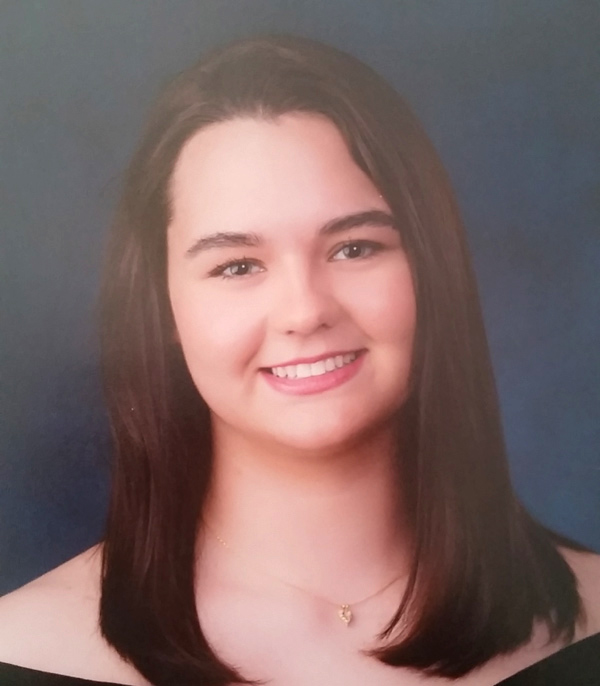
Rachel Greening
FORUM ON FAITH
Teams find 'God moments' on mission trips.
by Rachel Greening
Published: Saturday,September 5, 2015
Danbury News Times
For the past 16 years, The Congregational Church of New Fairfield has been going on an Appalachia Service Project (ASP) mission trip. I have had the privilege of going for the past three years, and they have been some of the best weeks of my life.
When you go on an ASP trip for the first time, you think that you are going down to West Virginia to work hard and fix up homes. After you have finished your first trip, and think about what you did, you realize it was so much more than what it looks like at first glance.
We consider ASP to be a relationship ministry with construction on the side, and after one trip, you can see how true that is.
Yes, a substantial focus on our trip is to repair homes - to make them warmer, safer and dryer. But most of what we do is building relationships. We build relationships with homeowners, our crew, our own church group, the other churches we meet, the staffers and with God.
The relationship we create with God is so honest and evident. This trip provided us the foundation to a whole new level of faith. We got to know God on a more personal level, but not only that, we got to know ourselves and how much faith plays a part in our lives.
On the last day of the week, everyone at the center gathered in a circle, and shared what we call our "God moment." We all picked some moment during the week that we saw or felt God's presence in our lives, and our work. We sat there for as long as it took to share our own and listened to everyone else's stories.
One of my God moments was on the second day of the week. It was scorching and I was already tired. The blistering sun was beating down on my neck as I dug out six-inch trenches against the house.
The trenches were going to be for the underpinning we had to put in, and eventually needed to be filled. I was about ready to put down the shovel and start walking back home to Connecticut. That's when I noticed a friend of mine, who was putting in the underpinning while I was digging and filling in the trenches, was wearing an ASP shirt from about a year ago.
The theme that year was "Apostello" or "life on purpose." I stood there in the 90-degree heat and 75 percent humidity, shovel in hand, looking at the back of her shirt, looking at the words in front of me. At that moment I knew. I knew no matter how bad I might have felt, I had a job to do.
I was in that situation; I was in that place for a reason. My life was on purpose, I was doing God's work, I was where I was supposed to be, where I needed to be.
I took a breath, looked at the letters stretched out on the back of her shirt one last time, and got back to work.
Sometimes, when we find ourselves in situations that we don't understand or don't want to be in, I believe you have to have faith. I believe you have to trust God and the fact that God does have a plan, no matter how much it may not seem like it. You must continue on the path of righteousness, continue to do God's work.
Looking at it from our point of view as volunteers, when we do this work, we know we don't change the entire world - but we hope we can change someone's entire life. Their world is different, better and safer because of the work we do as a team, as a community, and as members of the Christian faith.
From the stories that I have heard from those who had gone on the trip with me, they have meet homeowners they have come to love. In my experiences, I have gotten closer with my crews, I was introduced to a new side of God, a new level of faith, and myself, who I want to become.
Lord knows I'm not perfect, but God also knows I'm trying, and ASP is one way of getting me a little bit closer to the person God knows I can be.
Rachel Greening is a member of Congregational Church of New Fairfield's Senior High Youth Group.
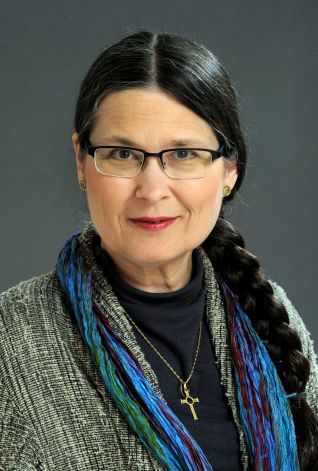
Rev. Smallwood-Garcia
FORUM ON FAITH
Meaning of Sunday school evolves over time.
by Rev. Bryn Smallwood-Garcia
Published: Saturday, July 18, 2015
Danbury News Times
This week ends another successful week of Peace Camp, sponsored by Danbury Association of Religious Communities (ARC) - in which each day, the children visit a different faith community and learn about how each religion teaches about peace. In Brookfield, we just ended our annual summer week of Ecumenical Vacation Bible School - held this year at Prince of Peace Lutheran Church.
Those of us from religious families obviously care about teaching our children the tenets of our faith. But did you know the first Sunday Schools were literally school on Sundays?
During the Industrial Revolution in late 18th century England, when so many poor children were putting in six long days of work a week in factories, Anglican reformers and other Christian philanthropists started church schools to teach illiterate factory workers and their children to read and write on Sundays.
In our world of relative privilege today, it can be hard to imagine exhausted child laborers and their hard-working parents devoting their one precious day of Sabbath to study, but for many of them, learning to read was the first step out of a life of desperate poverty, and their families were grateful for the opportunity churches provided.
The literacy movement spread in the 19th century to Protestant churches in the ever-expanding United States - in keeping with the notion that it was each Christian's duty to learn, so as to be able to read and study the Bible and develop a strong moral code for living. Mark Twain famously makes fun of such Sunday Schools in Tom Sawyer, but they were the backbone of American culture for generations.
Church leaders promoted free public education, as well as advocated for child labor reform - pushing for a reduction in the child work day to 12 hours in the early 19th century and eventual abolition of child factory labor in the United States in the early 20th century.
Child advocacy work continues today, and in fall 2014 the United Church of Christ began a project called "Reading Changes Lives" to encourage members to help support their local public schools. At our national church meeting, our General Synod this past month in Cleveland, Ohio - volunteers sorted enormous piles of donated school supplies and stuffed them into backpacks for local children in need. Congregational Church of Brookfield provided money for a rental truck to haul away and deliver all those donations.
The United Church of Christ Statement of Faith contains this wonderful phrase, addressed to God, "You call us into your church to accept the cost and joy of discipleship, to be your servants in the service of others, to proclaim the gospel to all the world and resist the powers of evil..."
It is with that prayer and that call to Christian discipleship in mind that our "Summer Sunday Spirit Camp" - our Church School classes on summer Sundays through Labor Day weekend - has chosen a wonderful curriculum on the "fruit" of the Holy Spirit that the Apostle Paul describes in his Letter to the Galatians, chapter 5.
In that passage, Paul writes that (verse 22) "the fruit of the Spirit is love, joy, peace, patience, kindness, generosity, faithfulness, (23) gentleness, and self-control." Each week, our teenagers and adults in 8:30am and 10:30am worship hear a sermon about the "fruit of the week" that the children are exploring in their Church School classes, which meet during the second half of the worship service.
The first fruit was "love," and last Sunday I preached about the second fruit, "joy." In the 15th chapter of John's Gospel, Jesus says he gives his commandment to "love one another" so that "joy may be in you." And as we commissioned joyful 16 youth and 8 adults to go off on a mission trip to Long Island to repair homes damaged by Superstorm Sandy, I preached about the joy that comes from loving and serving others.
After all that, I was delighted to hear a couple of little girls come bounding upstairs to me after their Church School class ended, to tell me how much fun they had making sandwiches for bag lunches for people in need in our community - which was their "joy" activity of the day.
That is our dream for our young people at the Congregational Church of Brookfield. We are committed to raising the next "greatest generation" of morally strong and courageous Americans. We want our children to be joyful and faithful disciples who work with us, now and in the future, for justice and peace in the world.
Rev. Bryn Smallwood-Garcia, Senior Pastor, Congregational Church of Brookfield. She can be reached at: 203-775-1279 or Bryn@uccb.org. Web site: www.uccb.org
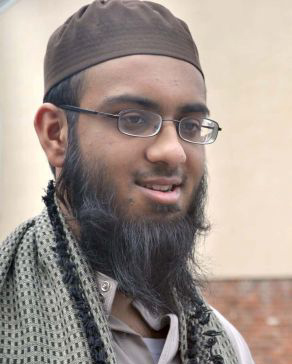
Imam Shaikh Usman Akhtar
FORUM ON FAITH
Fasting in Ramadan nourishes the spirit.
by Imam Shaikh Usman Akhtar
Published: Saturday, July 4, 2015
Danbury News Times
We've all experienced the end of a semester in which we know we didn't perform up to par. Throughout the semester we overslept, procrastinated, and handed in papers late. We often got to class late and had absolutely no idea what was going on in class.
Then all of a sudden it hit us in the face like a ton of bricks. It's the last week of school and I know I can't go home with the grade I have. And as we break out in a sweat of fear and grief, the teacher gives us that one last chance. Two extra credit assignments that will drop our lowest grade and add 5 points to our final grade. Phew.
That last chance is what we all need every once in a while. And for Muslims across the globe, that last chance is called Ramadan. Except this isn't a last chance at getting a passing grade in a class. It's a last chance at getting a passing grade in spirituality and our connection with God.
Throughout the year we have slacked in our relationship with God. We were lazy, miserly, and didn't do as well as we should have. Whether it's a family disagreement, a misunderstanding, or an overdue unpaid debt, Ramadan is the time of year we find the strength to cleanse our hearts and to make amends.
It's the month where our lowest grades are tossed and our final grade is bumped up after completing the month's long extra credit assignment. The Prophet Muhammad is reported to have said, "Whosoever fasts this month in faith and anticipation of reward, will have all their past sins forgiven." That's the lowest grades being dropped.
During the month of Ramadan, Muslims fast from sun up to sun down and stand long in prayer throughout the nights. It's a month of prayer, giving and charity. A month of hope, love and compassion.
Fasting means to abstain from food, water and sexual intercourse from dawn to dusk. But that's just the physical fasting part. There is a spiritual part of the fast as well. Which means staying away from anything that may displease God. That means no lying, no vulgar language, no anger, no road rage, no jealousy, no enmity, no gossiping and the list goes on. Fasting is an intense exercise in self-restraint.
Muslims believe the human body is mainly made up of two components; the physical body and the spiritual soul. The physical body is made from the earth, hence it is also sustained and nourished by produce from the earth. The spiritual soul however is something divine and heavenly; hence the nourishment of the spiritual soul cannot be through worldly materialistic means, but through divine heavenly actions and prayer.
We sometimes confuse the two and mistakenly believe that we can reach spiritual comfort through physical materialistic means, but to no avail. We can all agree that a soul at peace can fall asleep even on a hard ground, but a disturbed soul cannot find peace or comfort even on the softest of beds.
So the nourishment of both physical body and spiritual soul are of utmost importance for us to grow and progress, but due to our neglect of the spiritual soul and our excessive fulfillment of physical desires, we find ourselves spiritually bankrupt. Ramadan gives our spiritual soul a second chance to detach from worldly pleasures and focus on one's spiritual self.
By staying away from our physical desires in the month of Ramadan, it allows our spiritual self to grow, learn and connect with God. By the end of the month, our prayers are spiritually enhanced and there is an ecstasy that is felt in prayer. It`s a soothing and serene happiness that cannot be explained.
There are also many health benefits of fasting that are a huge plus. The body goes through an intense healing and detoxification process. The initial few days are tough but after a week or so, a fasting person will experience enhanced energy, clear- mindedness and enhanced focus.
The 1.7 billion Muslims around the world will be fasting in this sacred month of Ramadan. The fasting is intended to bring the faithful closer to God and to enhance their spirituality. We pray that this month brings happiness and joy, peace and love to all throughout the world. Ameen.
Shaikh Usman Akhtar is the Imam at the Islamic Society of Western Connecticut-Danbury Masjid in Danbury. He can be reached at akhtar119@gmail.com>.
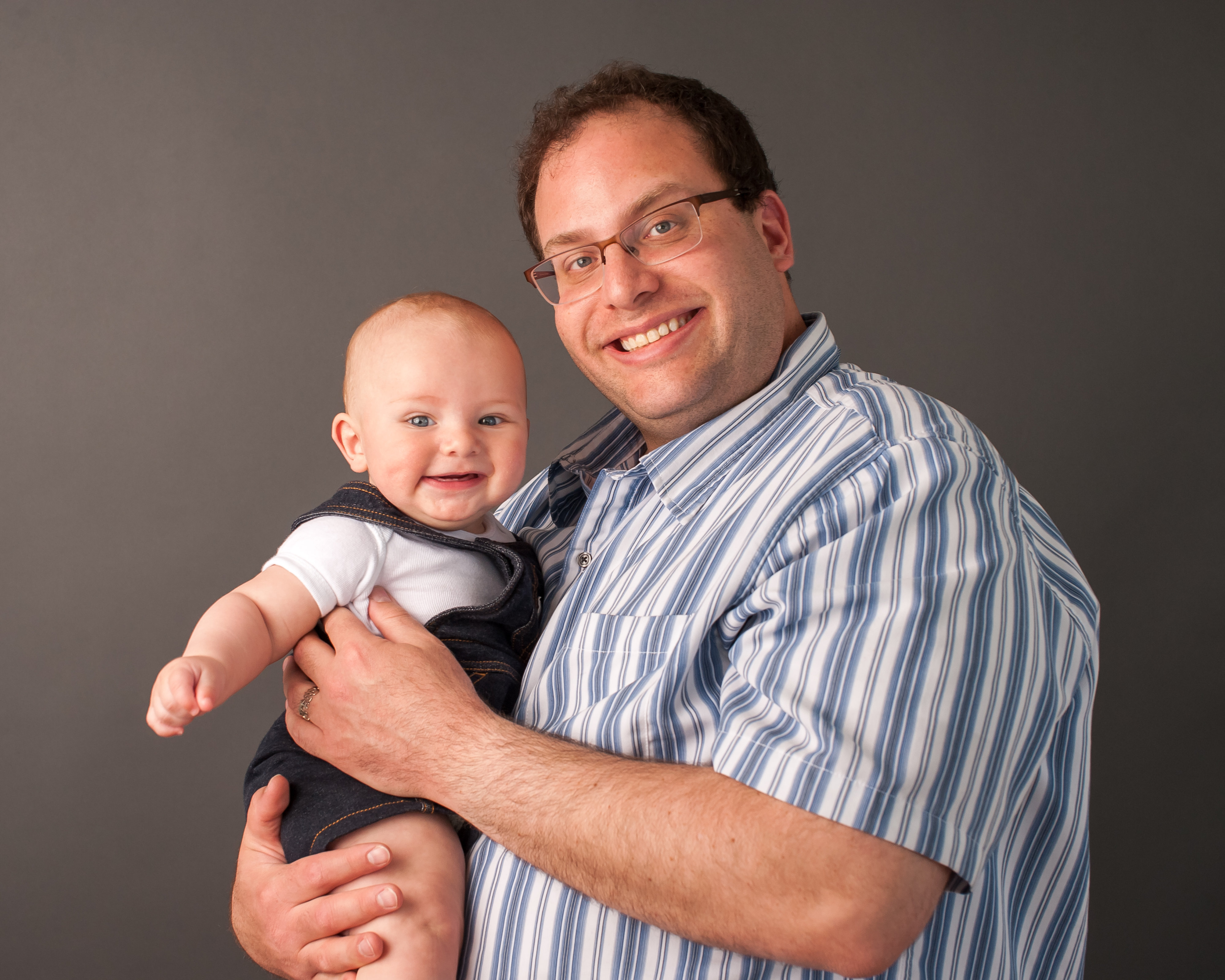
Rabbi David L. Reiner
FORUM ON FAITH
Faith helps strengthen father-son relationship.
by Rabbi David L. Reiner
Published: Saturday, June 20, 2015
Danbury News Times
Sunday is our first Father's Day. Your mother and I have been amazed to watch you grow since you came into the world at Danbury Hospital seven months ago.
We have thoroughly enjoyed getting to know you - though we wish you would sleep more - and we are continually entranced by your beautiful blue eyes, your two-toothed smile, and your pleasant demeanor. I love holding you in my arms, making you laugh, listening to your "conversations," and watching how you take in the world that surrounds us.
Father's Day is a day I celebrate my father, and this year is no exception, even with you. I am reflecting on how I can be a great father. My father set the bar pretty high.
Like me, my father is a rabbi, and it was sometimes hard to share my father with everyone in our congregation. As an "RK" (a "Rabbi's Kid"), there is often a lot of pressure and attention. Your mother and I will do our best to shield you and make sure you are always certain of our support and love.
My father, one of the most intelligent, kind-spirited and supportive people I know, always made it clear that I was the priority in his life. He once interrupted an important job interview so that he could put me to bed - he still got the job. Learning from the best, I am inspired to show you that same kindness, support, love and more.
As a rabbi, I visit families as they welcome new additions and bid farewell to loved ones. As a comforting and parental presence, I share words and motions that have brought meaning to countless generations.
Judaism and Torah (Pentateuch) are at the center of my life and my work; teachings of Torah guide me daily. As I seek to bring Torah and Jewish tradition into the lives of others, so too do I bring words of Torah into our life.
We read in Genesis humans are created "in the image of God" meaning we look like God and we should act like God. There are many names for God in Torah; each name evokes an attribute toward which we aspire. We call God Avinu - our parent (or father) - and we understand God as parent-like. As I consider what it means to be your parent, I think about how I can be God-like
As we celebrate my first Father's Day, I return to promises your mother and I made publicly at your naming ceremony, when we welcomed you into the Jewish people, to reflect on how I can be a better father, inspired by our relationship with God.
We call God "Tzur" - a rock. I will be a sturdy presence and help you build a strong foundation for a meaning-filled life.
We call God "Ahava" - love. I will love you unconditionally and help you appreciate the love of your family and the love that your mother and I share, hoping you will share your love with others.
We call God "Rachamim" - Compassionate One. I will show you compassion and always help you - even when you make mistakes - instilling compassion within you, that you may always seek the good that exists in each person you encounter.
We call God "Emet" - Truth. I will demonstrate honesty and integrity in our home and in my work with others; may you always pursue and find truth and justice in your dealings and in your life.
We call God "Rofeh haCholim" - Healer of the sick; M'kayeim Emunato leesheinei afar - Keeper of faith with those who sleep in the dust. I aspire to bring healing and comfort, inspiration and strength to so many, through connecting the individual narratives of those who I am blessed to serve with the narrative of our tradition. May you bring healing to the sick, freedom and justice to all in the world, support and comfort for all those who are in need, whether they lie in the dust or on plush mattresses in magnificent mansions.
Samson, these are values I continue to learn from my father, your "grandpa" - through his ministry and the way he lives his life, grounded in Torah, serving and inspiring others, supporting my hopes and dreams. Even if you don't become a third-generation rabbi, I hope that you will find inspiration in how I live, and seek to serve others as my father inspires me.
Rabbi David L. Reiner, Temple Shearith Israel, 46 Peaceable Street, Ridgefield, CT 06877. He can be reached at 203-438-6589 or Rabbi@TSIRidgefield.org,.
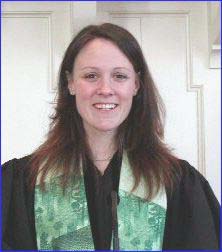
Rev. Jennifer Whipple
FORUM ON FAITH
High school grads to speak about their faith.
by Rev. Jennifer Whipple
Published: Saturday, June 6, 2015
Danbury News Times
The Congregational Church of Brookfield on Sunday will hold its Baccalaureate service. Each year about this time, we have a Sunday worship service that recognizes the hard work of our young adults as they graduate from high school and prepare to take a next big step in their life's journeys.
We offer gifts to them -- small tokens that will help them remember their connection to the community and family of faith that is within the building at the crossroads in the middle of Brookfield.
It is also the Sunday when we turn the pulpit over to our graduating seniors, offering an opportunity for them to bear witness to what their faith and our community of faith have meant along their journeys.
The best part of this Sunday is there is no editing. No one looks at what our soon-to-be graduates are planning to say ahead of time.
The best part of this Sunday is our young adults are allowed to speak their faith from their hearts, to offer words of gratitude and advice to those who have walked the journey with them -- whether for a year or for their entire lives.
The best part of this Sunday is there are always surprises about who chooses to share, what stories they recount, and what they identify about the places where and moments when the Spirit has broken into their lives and offered challenge, support and encouragement.
The best part of this Sunday is watching these amazing young men and women, with all their differences and diverse passions, take the lead in front of the church that has hopefully equipped them to do so.
One of our graduates said a few years ago the church is the place where she learned important life values that, while not exclusive to Christians, should certainly be held by all Christians -- life lessons about loving and accepting others for who they really are.
Another mentioned the church offered the opportunity to build relationships that were unexpected and taught him about dedication, forgiveness, transformation and love.
Yet another spoke about the church being the place where she was able to find herself -- discover her gifts through mission opportunities -- and make plans for her future with the support and care of people in a "no-judgment zone."
At its best, this is what our church community strives to be -- a place of unconditional love and acceptance, yet a place of accountability.
We hope it is a place where people can wrestle and struggle with their faith; a place where people can grow and change and be equipped to share God's love and work for change and justice in the world, a place where people can come when they are experiencing the utmost joy or pain, or something in between.
We hope it is a place where people can find God's voice still speaking to them -- rejoicing, comforting, challenging and/or offering hope for the journey through relationships with others.
On our best days, that is what you can find in the context of our community -- in worship, committee meetings, adult education, youth fellowship groups, choirs, church school or in fellowship hour over a cup of coffee.
The church community will come together from 9 a.m. to 3 p.m. Saturday for a Thrift Shop and Barn Sale to benefit our summer youth mission trip and Brookfield Social Services.
Our young adults give themselves generously to the work of our church -- not just on this one day, but on many days.
They serve on committees, help lead worship as lay readers and deacons, teach church school, offer weeks of their lives in service to others on mission trips and this Sunday will give testimony to faith that matters to them.
My hope and prayer is we have planted seeds of faith and service that God has made grow.
My hope and prayer is we have equipped them with skills for facing life beyond the walls of our community.
My hope and prayer is they will take their faith with them as they take this next step in their journeys, that it will remain a part of them as they encounter what life has in store, and they will be not only the now of the church they serve but the bright future of the church as well.
Rev. Jennifer Whipple is the Associate Pastor of the Congregational Church of Brookfield (UCC), 160 Whisconier Road, Brookfield, CT 06804. She can be reached at 203-775-1259, ext. 308 or jennifer@uccb.org.
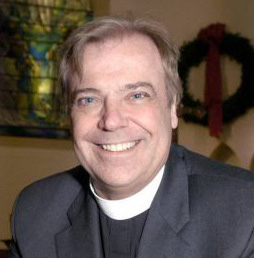
Rev. Joseph Krasinski
FORUM ON FAITH
Healing service promotes sense of community.
by Rev. Dr. Joseph Krasinski
Published: Saturday, May 16, 2015
Danbury News Times
Every first Sunday of the month at 8am and every 3rd Sunday at 10am, we at St. James' Episcopal Church dedicate a portion of our worship time to a healing service. The format is very simple: People come forward and first are anointed with Holy Oil that is blessed by the Bishop; then they go to one of the Healing Ministers for prayers.
The anointing portion of the Service dates all the way back to the Christian scriptures in the letter of James where the author instructs any who are sick to call for the elders and have them pray over the sick anointing them with oil. In the story of the Good Samaritan, Jesus tells us that the Samaritan poured oil and wine over the wounds of the man who had been attacked.
In those days it was felt that oil could "seal" the wound and inhibit what we now know as infection. The Church continued this practice but in a more symbolic way and now anoint people with the Oil of the Infirm.
For what types of things do people request prayer? That all revolves around our understanding of "healing." People are encouraged to come forward for any reason to ask for prayer.
Some people come forward and ask for prayers for themselves before a surgery, or if they are having a particular illness. Some come forward to ask for prayers for a loved one or friend who is sick. There are those who ask for prayers to assist them or a loved one in the work of recovery.
Why do people come forward? Surely we all can and should pray to the Almighty One on a regular basis! Do we have to have someone else intercede to God for us? I believe the answer to that is "no." Not in the least. First of all, God knows what we need before we even ask.
I believe prayer is a way in which we participate in God's plan for us and for the world by being in constant contact with God. There is something important about not only praying with other people, joining in that sense of community with fellow believers, but also that sense of "you are not in this alone." There are others here who care for and about you and your issues.
The people who pray with those who come forward have not heard a special message from God to do this - they haven't been knocked off their feet by a bolt of lightning.They haven't received any special theological education or been ordained. God's Spirit has gently called them to walk with others on their journey during these difficult times. Their prayers come from the heart and from their own faith.
The expectation during the Healing Service is never that someone will come forward and be spontaneously healed. While we don't rule that possibility out, it is more important for the individual to feel God's healing presence in their life at that moment in time.
In Baptism in the Episcopal Church, we ask the person being baptized (or the child's parents and sponsors, if they are not old enough to answer for themselves: "Do you put your whole trust in [God's] grace and love?" Coming forward for healing is a physical gesture that embodies an act of trust - in doing so, you are placing your needs and the needs of others into the hands of God, trusting that God is doing more than we can ask or imagine.
In this incredibly difficult time in U.S. history, let us all join together and pray to the God of all - for the healing of divisions in our country. We ask that the peace of God, which passes all understanding, will enter into each of us individually so that it can permeate our whole society and lead to our nation's healing.
The Rev. Dr. Joseph A. Krasinski is the Rector of St. James' Episcopal Church, 25 West St., Danbury, CT. He can be reached at joseph@saintjamesdanbury.org or 203-748-3561.
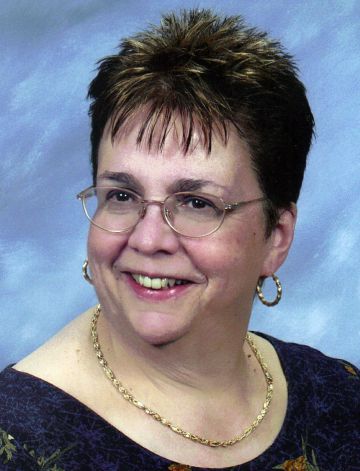
Jo Gabriele
FORUM ON FAITH
Sunday rituals leave lasting impression.
by Jo Gabriele
Published: Saturday, May 2, 2015
Danbury News Times
I recently went to visit a friend in a hospital in Westchester County and as I got out of my car, realized I was standing on the property that was once owned by my family. It immediately took me back to the simple, happy days of my childhood and the many memories of God's everyday blessings.
My maternal grandparents lived with my mother's sister and her family on the outskirts of my hometown of White Plains, N.Y. During the summer, my mother and I would often take the bus to their home for a weekend visit with the family. On Saturdays, my cousins and I would spend time in the barn with the rabbits my grandfather raised, or we played games in the maze that made up the massive garden that was lovingly cared for by my grandfather and uncle.
Sundays, however, were all about faith and family.
One of my most vivid memories of Sundays is of my grandmother and her apron. While the primary purpose of her apron was to keep her clothes clean, it served so many different purposes.
Sunday morning always started with early Mass and our practice was not to take in any food or drink until we had received the Body of Christ in communion. When we returned home, my grandmother would don her apron and the rituals of the day would begin.
After breakfast was done and the kitchen cleaned, my grandmother would motion to me to join her in the garden. My grandparents didn't speak English, so as a young child I learned primarily by observing how things were to be done and watched my grandmother's facial expressions to determine if I was doing them right. In the garden, my grandmother's apron was instantly transformed into the vessel we used to harvest whatever fruit and vegetables we would eat that day.
We'd return to the house where there was a chair, a milk carton and a pot waiting for us. As grandma sat in the chair, I took up residence on the milk carton at her knee and together we would clean the vegetables. First I'd watch, then I'd try it myself, always looking to my grandmother's face for the smile of approval or a waving finger that told me I was doing it wrong.
In the end, the apron was once again transformed, now becoming the vehicle that carried the harvest to the kitchen sink for washing.
With the bounty ready for cooking, my grandmother, mother and aunt, would talk in their native Italian language and start preparing the main midday meal -- each one wearing the all-important apron. Sitting at the kitchen table, I'd watch as they seamlessly worked together and waited with anticipation for our extended family from Brooklyn to come and join us.
The house wasn't big enough to accommodate all of us, so the long dirt driveway, was outfitted with sawhorses and sheets of wood covered in tablecloths to serve as our table. When the cousins arrived, you most likely would find me hiding behind my grandmother's apron.
There was one cousin in particular who scared me and I do believe she took some pleasure in knowing that. Eventually, I'd be coaxed out from behind the apron to deliver the obligatory kiss after which I'd dash back to my grandmother. If my cheek got pinched, I'd sometimes cry and my grandmother would lovingly wipe away my tears with her apron.
At last, the midday meal was placed on the table, the apron now serving as the pot holder to carry out the trays of food. It was just before we sat down to say Grace before dinner that the apron was finally removed and we joined together to share in God's most precious gifts.
Our family's worship and devotion to our faith were as sacred as the gifts of everyday blessings we receive from God. I am ever thankful of the blessings I had growing up with two sets of grandparents, being able to communicate without the necessity of words, of experiencing the deep love, respect and devotion of family, of understanding the role of my grandmother's apron played in the nurturing of her family and of my faith, which comforts and guides me every day.
As we prepare to celebrate Mother's Day, may we all give thanks and honor the mothers, sisters, aunts, godmothers and women who we were (and are) blessed to have in our lives.
Jo Gabriele is a staff member of The Association of Religious Communities. She can be reached at: proassist@arcforpeace.org.
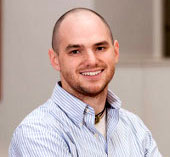
Rev. Jack Davidson
FORUM ON FAITH
Faith shows pile of trash can become heap of fortune.
by Rev. Jack Perkins Davidson
Published: Saturday, April 18, 2015
Danbury News Times
This past year, I unwittingly became a pumpkin farmer. It happened one day in late fall. I went into the woods behind our church's parking lot to scavenge for some fire wood, but my path was blocked by an extensive network of thick green vines.
I'm told pumpkins are surprisingly difficult to grow. They need perfect conditions. They need lots of love and care. They don't just pop up willy nilly.
And yet there I was, staring at five large orange masses caught in a tangle of green prickly vines.
I had all but forgotten the pumpkins from last year's church fair decorations. I had all but forgotten about when they stopped serving their purpose as a pleasant visual aid and I threw their rotting carcasses back into the woods.
Some smart theologians out there say we've got the idea of "Hell" all wrong. We think of "Hell" as this supernatural afterlife of God's creation. But when Jesus was talking about "Hell," these theologians say most of the time he used the word "Gehenna."
We traditionally translate that word "Gehenna" to mean "Hell," but it was actually the name of the city dump in ancient Jerusalem, a place where trash was constantly burning. That stench of sulfur, the fire and brimstone, the idea of being cast off into the deep, that wasn't some supernatural afterlife, but an actual place on earth, a thing that humans did, a place that humans created when they were done with their pumpkins.
We humans, we tend to be all about the garbage dump. When we are done with things -- or even people -- when we think they've stopped serving their purpose as a pleasant visual aid, we just throw them in the heap.
I believe God's not one for trash heaps. If garbage dumps are where we take things you don't want any more, things we think are done serving their purpose, then I have to believe God has no garbage dump. I have to believe God has no Gehenna.
I have to believe God has no Hell, because I've been taught by scripture that God is never done with us. I've also been taught by Easter that even death is not strong enough to have the last word over God.
Christians around the world recently celebrated Easter. I like to think of it as a day when we all unwittingly become pumpkin farmers. Or maybe it's a day when we all unwittingly become pumpkins. Either way, it's a season to celebrate the time when God reclaimed Jesus of Nazareth from the greatest depths of our garbage dump.
The Easter season is a time to remember that though the tyrants and empires of this land might toss us aside, God will always pull us out of the heap, dust us off, and send us out to bring hope to a struggling world.
There once was a woman named JoAnn. She couldn't understand how it was possible that her own friends were going to bed without food on the table.
One night JoAnn watched as her local grocer carried bag after bag of freshly baked bread out to the dumpster. The dumpster was stuffed to the brim with crates of produce, piles of canned goods, even cartons of ice cream. All of it was past the expiration date on the label, but all of it was still more than edible.
JoAnn started diving in. She rescued the disposed goods from the heap. She fed her neighbors this way until the manager caught her red-handed. Instead of stopping her, he decided to help her.
JoAnn doesn't have to dumpster-dive anymore. Grocery stores from around the state of Maine send the food to her, large 18-wheeler trucks of food that would have just been thrown away. That's how the Good Shepherd Food Bank was started, by resurrecting food from the tomb of the trash can.
When we see a rotting pumpkin that's of no more use, I think God sees the seeds for new life. When we see sinners, I think God sees saints. When we see the poor in spirit, I think God sees the inheritors of the Kingdom of Heaven.
I believe God is less about Gehenna and more about Heaven, less about throwing out and more about recycling, less about eternal damnation and more about Easter.
The Rev. Jack Perkins Davidson, First Church of Christ, Congregational, UCC, 25 Cross Highway, Redding, CT 06896. He can be reached at: 203-938-2004 or jack@firstchurchredding.org.
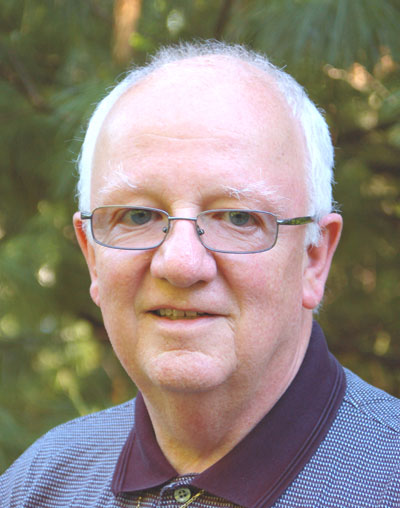
Deacon Peter Kuhn
FORUM ON FAITH
Easter has message for even non-believers.
by Deacon Peter Kuhn
Published: Saturday, April 4, 2015
Danbury News Times
Today is Saturday. More to the point, for Christians today is Holy Saturday - the end of Holy Week, the final day of Lent, and the day before Easter Sunday. Throughout the Christian world this morning, volunteers hurriedly are preparing their church buildings for the greatest, most solemn, most joyful feast of the year. Lilies, the traditional flower of Easter, will be brought in by the score from local florists and greenhouses to fill sanctuaries that largely have been bare for the past six weeks of Lent.
Now the time for fasting and other acts of penance is nearly over. Tomorrow Christians will celebrate the single-most foundational truth of our faith: Jesus Christ is risen from the dead! Even in the midst of all the other trappings of Easter - bunnies, colored eggs, jellybeans, and Peeps - most people, I think, know that what Christians will celebrate tomorrow is Jesus' triumphant rising from the dead following his ignominious crucifixion and death on Good Friday. But as miraculous, glorious and triumphant as Jesus' resurrection is, it still is just part of the story.
What makes Easter so momentously important in the Christian tradition is our belief that we have been saved from our sins, forgiven, and made whole once again in Christ. We believe humankind's faithlessness and pride - the doctrine of Original Sin personified in the Bible story of Adam and Eve - brought death into the world and deprived us of the eternal reward that God had intended for us from the creation of the world. In taking on our humanity and humbling himself even to the point of accepting death on the cross, we believe Jesus Christ "broke the chains of death" and once again made possible our salvation.
That's the truth conveyed by those "John 3:16" signs that people hold up at sporting events. It is the Scripture verse that reads: "For God so loved the world that he gave his only son so that those who believe in him might not perish but have eternal life."
So that's the meaning of Easter in a nutshell. (Or should I say, in an Easter egg shell?) But is there still more? Could there be even more to the meaning of Easter? Do those who do not celebrate Easter in a spiritual or religious way have to be content with the bunnies and the eggs and the jellybeans?
The answer is no; there is a powerful, life-changing message in the Easter story that is worth reflecting on by even the least religious of people. The message is that without Good Friday - without the cross - there would be no Easter. Christians believe that all of us, regardless of our religious beliefs - or the lack of them - must be willing to die to our sins, faults or wrongdoings.
In other words, we must strive to put aside, to change, and to "die" to whatever in our lives is separating us from The Good. That "Good" can be God, but it can also mean our own goodness. And it certainly means the good of our world and our neighbor.
The Bible teaches us that we are to love God and love our neighbor. God is often hard to see and hear and understand, though, so for most of us the answer is to love God through our neighbor. Our towns and cities, our country and our world never will be the peaceful, beautiful places we want them to be until we can put aside our own selfish egos and desire for pleasure and learn what compassionate service to our neighbor really means.
And our neighbor is not just the person next door. Our neighbor is Everyman and Everywoman and Everychild of every age, gender, race, color, creed, nationality, sexual preference and/or financial status.
So on Easter, Christians again will celebrate the greatest act of love the world has ever known: our belief that Jesus - the son of God - suffered, died and rose again so that all people might have joy and have it to the full in this life and in the next. When believe that when we die to our sins and faults, we can experience our own resurrection into a world of joy and peace. That's the glory of Easter.
Deacon Peter Kuhn ministers at St. Joseph Roman Catholic Church, 163 Whisconier Road, Brookfield, CT 06804. He may be reached at deaconpeterk@parishmail.com.
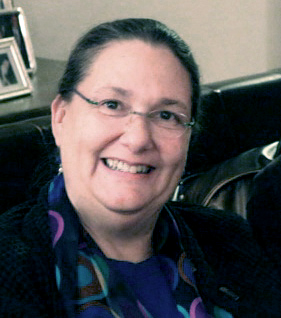
Polly Castor
FORUM ON FAITH
Woman's vision paved the way for Christian Science church.
by Polly Castor
Published: Saturday, March 21, 2015
Danbury News Times
In honor of March as Women's History Month, I have recently read the new biography for young people titled A World More Bright by Isabel Ferguson and Heather Vogel Frederick. It is about the life of Mary Baker Eddy, the founder of the Christian Science church.
In her own time she was as famous as Oprah is today, but now it seems people do not know much about her. So I thought I'd share a bit of her story with you.
Born in 1821 to Christian parents, she grew up on a farm in New Hampshire, learning from an early age to turn to God in prayer. She was often ill, and although she tried all sorts of avenues for relief, she remained uncured.
Then in her 40s she slipped and fell on some ice. She sustained such serious internal injuries that she was not expected to live. While lying in bed, she asked for her Bible, and after reading accounts of Jesus healing the sick, she was healed, much to the surprise of everyone.
This complete healing, without the use of medication, got her attention! After that she devoted herself to careful study of the Bible. She wanted to understand not only how her own healing had come about, but she also wanted to figure out how Jesus healed.
She wrote of that time, "The Bible was my textbook. It answered my questions as to how I was healed; but the Scriptures had to me a new meaning, a new tongue. Their spiritual signification appeared; and I apprehended for the first time, in their spiritual meaning, Jesus' teaching and demonstration, and the Principle and rule of spiritual Science and metaphysical healing - in a word, Christian Science. The miracles recorded in the Bible, which had before seemed so me supernatural, grew divinely natural and apprehensible."
She started consistently healing others. Once when she was praying at the deathbed of someone who was healed, the doctor who was there pulled Mrs. Eddy aside. If he hadn't seen it for himself, he would have found it hard to believe; he wanted to know how she had done it. "Put it in a book and give it to the world," he exclaimed.
And she did. She wrote Science and Heath with Key to the Scriptures, which remains the definitive book on Christian scientific healing. A bestseller even today, its last 100 pages document how readers in her own time were radically healed of all kinds of difficulties just by reading and pondering this book, together with the Bible.
Eventually, in 1879, Eddy founded a church - the Church of Christ, Scientist - for devoted readers of the Bible who had come to better understand God and Christ from also reading her book. She ordained both the Bible and Science and Health as the actual pastor of her church, where sermons consist of Bible lessons read from these books on a certain topic each week. With the founding of this church Eddy's intention was to "reinstate primitive Christianity and its lost element of healing."
Countless testimonies of gratitude for healings brought about by the system she discovered and taught are documented in over 130 years of weekly and monthly publications still being printed by the Publishing Society she founded. Additionally, there are weekly testimony meetings in local Christian Science c hurches worldwide, held on Wednesdays.
In her late 80s, Eddy went on to start the "Christian Science Monitor," which is still a respected news source today. Her goal with this newspaper was to provide unbiased, straightforward world news that did not capitalize on sensationalism, but instead sought to impartially bless all mankind.
Eddy was also a revolutionary in her Victorian age, because she defined God as both Father and Mother in a time when women were not allowed to own property or speak in public - let alone found churches. And yet, she - with God's help - simply did it anyway.
I think what Mary Baker Eddy accomplished was amazing. Her pioneering work in metaphysics, and her place as the forerunner of the mind/body connection, were over a century ahead of its time. Many people don't realize the legacy she gave us.
I can see how the contributions of this profound woman continue to bless the world - how they have dramatically improved the lives of innumerable individuals, including mine.
Polly Castor, Christian Science Practitioner, First Church of Christ, Scientist 260 Main Street, Ridgefield, CT 06877. She can be reached at 203-572-5515 or PollyCastor@gmail.com/
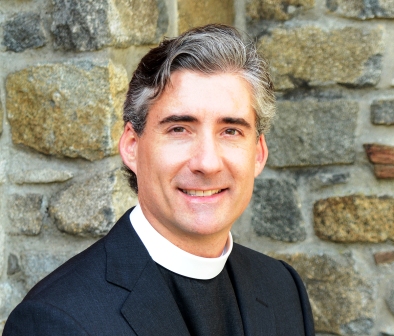
Rev. Joseph Shepley
FORUM ON FAITH
Measuring success in Christian churches.
by Rev. Joseph Shepley
Published: Saturday, March 7, 2015
Danbury News Times
Do we measure up? Do we have what it takes? Will we even make it?
Quantifying our lives in such a manner is all too common, where we tend to absorb into our spiritual fiber the external habits of a world enthralled with the fleeting pursuit of what is often termed "success," and a terror of a lack thereof.
In the marketplace, felt needs are interpreted, strategies employed and profits sought, all with a common goal of recognized advancement. Increasingly, such a vision has been applied to the church, often with fine intentions and even, at times, definable results.
With attendance at Christian churches on a downward trajectory across our country, and particularly in New England, we find ourselves searching for a quick response plan to stem the tide. Yet, we do well to consider once again by what instrument we are measuring God's mission.
The church has always been in the forgiveness business. Our charter from the start has been to preach the forgiveness of sins to everyone (Luke 24:47). While success understandably motivates companies, it has never truly informed the church. For we are called to something rather immeasurable, at times messy, and often maddening in its inefficiency: faithfulness.
A rooster-shaped lamp sits in my parish office. It reminds us of why the church exists, and how even pastors, especially pastors, must know from whence they come. Why a rooster?
The Apostle Peter, upon whom Christ declared the church would be built, learned from Jesus that we must forgive not seven times, but seventy times seven. After Jesus' arrest, Peter denied ever knowing Jesus; a rooster then crowed. The church was built upon human failure, and the restoring power of divine forgiveness.
As members of the church universal, what Christians name as the living Body of Christ, mystically gathered, we know ourselves as sinful beings, broken and flawed human creatures. I believe that it is in spite of our checkered personal histories as churchgoers, or perhaps precisely because of them, that we happen to have the corner on the market on forgiveness from above.
And isn't this something the world needs more of? We who are in the forgiveness business can have complete confidence in our product, for it has outlasted fluctuations of markets, the rise and fall of empires and, yes, even our own proclivity towards sabotaging hope.
Continual reminding that God's standards are lovingly low, and that we are just the people God has chosen, is motivational speech often heard within our halls. If there is any place within God's mission for what might be called "success," then this must be the so-called secret. Did people who came to worship in our churches hear this Good News of divine forgiveness and understand it?
I believe that God specializes in new starts and second chances. God continues to promise to make all things new. Insofar as our church extends this Good News, helps us to recognize our own frailty, and fills us with the desire to return to God, with a willingness to believe that we are truly lovable, then I would say the church is the church.
As a prominent ecclesiastical figure once prayed to God, "It's your church. I'm going to bed. Take care of it." The business of forgiveness is not of this world, and its flawless strategy - defying human credulity from age to age - continues to sell itself.
And so I believe the Christian Church still has what it takes to "succeed" in the forgiveness business. For the message we have to share, and its effects on those who receive it, never did belong to us in the first place. And therein is our hope.
The Rev. Joseph Shepley, Rector, St. Paul's Episcopal Church Brookfield, CT 06804. He can be reached at: 203-775-9587.
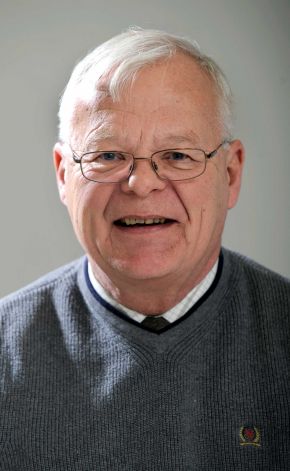
Rev. Bill Huegel
FORUM ON FAITH
Danbury church develops a way to help the hungry.
by Rev. Bill Huegel
Published: Saturday, February 21, 2015
Danbury News Times
When I arrived at Central Christian Church in downtown Danbury on the first Sunday of October 2013 as interim minister, I had a lot to learn about my new city.
On my first Sunday here, we were well into the worship service when a man came through the sanctuary doors. He looked troubled and needy. He began to pace back and forth across the back of the church. He came part-way down the aisle, then turned and walked back.
All of this was happening during my sermon. I was just getting to know people here. I didn't know whether this man was a regular in worship or not.
The congregation didn't seem disturbed. They continued to listen -- and finally, the man left. I later learned this man had come for the food.
Central Christian Church has a wonderful tradition. Few people leave at the end of the worship service. Most people move to the Fellowship Hall, where coffee and goodies are served -- a smattering of cookies, cake, fruit, crackers and cheese, along with freshly made coffee.
People sit at tables and engage in conversation. It's quite delightful. It's clear this group of folks enjoy being together and talking.
The man who walked through our church doors was in need of food, which we gladly serve to everyone at the end of each worship service. On this particular Sunday, he was early. He had hoped to come in at refreshment time. His emotional needs were too great to benefit from sitting through worship.
A similar thing happened a few weeks later. I was learning that Danbury has some hungry people.
It's important for us to know that we can really help the people who need it most. If there are people in need who, out of their own sense of pride and independence, will not come inside a church to ask, then how can we possibly help them?
For many people who might be in need, I think churches are simply not places to go for any other reason than to pray and to worship -- and perhaps they stay away out of fear that if they came inside, God would not be pleased. So, how can we help?
I learned of an organization in town called ARC -- The Association of Religious Communities -- and the many services they coordinate.
Of special interest to me was ARC's food pantry called "Comida" (now with a new refrigerator), which has the support of a "food rescue" program from Trader Joe's. With the help of donated leftover produce, Comida has been able to expand its offerings and provide families with fresher, healthier foods.
Rev. P.J. Leopold, executive director of ARC, said it is always a struggle to get enough food. Comida depends on donations. As I listened to that need, I wondered what we, as one church, could do to help.
It dawned on me that after our fellowship hour each Sunday, a few people could go over to a table set up for the purpose of bagging up bulk-purchased rice and beans. The food would be poured into large plastic bins and then cups would be provided to fill the bags. With a half dozen people working on this project, we could finish it up in 15 minutes. The bins now loaded with filled bags would be taken to the food pantry during the week.
It worked. Our folks voted to do it. They engage in the work happily and joyously. We know the food is going to meet real tangible needs.
Our churches exist to meet spiritual needs. We do that consistently and effectively. Yet none of us Christians can escape the words of Jesus (in Matthew 25:37-40),
"Then the righteous will answer him, `Lord, when did we see you hungry and feed you, or thirsty and give you something to drink? When did we see you a stranger and invite you in, or needing clothes and clothe you? When did we see you sick or in prison and go to visit you?'
"The King will reply, `Truly I tell you, whatever you did for one of the least of these brothers and sisters of mine, you did for me.'"
I am grateful for the ministry of ARC and their help in engaging Central Christian Church in this tangible ministry of helping feed the hungry in our Danbury community.
The Rev. Bill Huegel, Interim Pastor, Central Christian Church, 71 West Street, Danbury, CT 06810. He can be reached at: 475-529-3026
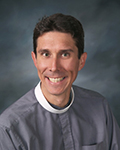
Rev. Garrett M. Mettler
FORUM ON FAITH
Religious beliefs carry tensions of what is real and 'fairy stories'.
by Rev. Garrett M. Mettler
Published: Saturday, February 7, 2015
Danbury News Times
Not long ago, I happened to choose a lunch table at the school where I am the chaplain where a lively conversation was taking place. One of our high school juniors, a thoughtful, sincere, and passionate young man, was engaged in a conversation with a widely admired faculty member about his beliefs.
This faculty member had spoken in one of our chapel services two years ago about why he is an atheist, explaining his conviction that the ideals of religion are achievable without the baggage of God and especially the bureaucracies of churches, mosques, synagogues, and temples.
The young man still remembered that talk and had questions. Essentially, he was curious to learn why his teacher was so convinced about the nonexistence of God.
Underlying his questions, I think I detected a desire to compare the intersection between the things of our lives that seem certain - what we can see, hear, touch, and cite facts about - and things that are hopeful and inspiring, but mysterious. When I took a seat at the table, he was presented with two very distinct perspectives on where we can find our most abiding values and anchor our most desired hopes.
I believe that a tension lives within most of us, expressed in the questions I heard at that lunchtime table. We are drawn to hopeful possibilities that are not within our own power to make reality, but we are much more comfortable dealing with the things we can control.
I believe we yearn to connect with a transcendent being, to be a part of something that is greater than ourselves, but we are afraid of what other people will think of us in this data-driven age if we appear too caught up in what my aunt used to call "fairy stories."
Still, I think we want to find devotions that give us meaning, hope, inspiration and challenge. And we want the object of those devotions to be graspable. But those whose devotion is a close relationship with God and those who are devoted to ideals grounded in human ingenuity and determination are not necessarily as far apart as they might seem.
As one of the former, I am not satisfied with the language of theology alone. I need to be engaged in regular practices that make the love and peace of God palpable. My faith feeds on a steady diet of active expressions that renew the strength of God within me.
Those who seek the betterment of their own lives and our human condition make plans for how to accomplish their goals, but they are not guaranteed their efforts will be successful. They put faith in their good intentions and the power of their determination to achieve what they desire. The mystery and delight of putting my faith in the graciousness of God is that I still have the strength of my own desire and determination, and I have an unyielding foundation of support beneath me.
It is not hard to look around at the many problems around us and feel adrift in a world spiraling downward from the depleting influences of our own power - which we can see, hear, touch and cite facts about. But when I look instead at the power that God has offered to humanity, above and beyond our own, I cannot help but be excited about a future that looks much different.
Not to a distant future after the many trials and uncertainties of this life, but a present composed of many acts of divinely inspired caring. Acts whose motivation is empowerment, justice and cherishing the dignity of every person involved - acts that embody the character of God above the character of humanity.
This expression of faith is what I understand true religion to be. It is a marriage between the things of our lives that seem certain and the things that are hopeful and inspiring but mysterious. It is what I think the inquiring junior at my school is curious about.
If God is there, how can we know and see God involved in our world? When we risk looking beyond only our own abilities and desires, we can find the enormity of life God has in store for us.
The Rev. Garrett M. Mettler, Chaplain, Wooster School, 91 Miry Brook Rd., Danbury, CT. He can be reached at: garrett.mettler@woosterschool.org or 203-830-3979

Rev. Phyllis J. Leopold
FORUM ON FAITH
King's rise shows how little things can make a big difference.
by Rev. Phyllis J. Leopold
Published: Saturday, January 17, 2015
Danbury News Times
It's that time of year when we pause to celebrate a wonderful and hard earned holiday. Rev. Dr. Martin Luther King Jr. did a great deal for our nation. He even gave his life.
I've always been fascinated by the way he first became famous. It was not in the usual way. It was not because he served the biggest church in the world. Nor was it because he had earned, so to speak, some great ministerial stripes.
The situation was much simpler.
The clergy in his town had gathered to plan their annual Thanksgiving Service. He was "the new kid on the block." The group of clergy did the customary thing. They asked the new minister in town if he would be the guest preacher. And, he said yes.
That was it. One community sermon. And, it blew people's hair back.
My mother, and much of her generation, was raised in a church which put a high value on "thou shall not." For instance, shall not curse, drink, dance, or gamble. For my grandmother, and many in her generation, the list included shall not wear lipstick.
I'm glad I came up at a time when the emphasis of the United Methodist church moved in a new direction. As a Sunday School child, Confirmation Candidate and later, theology student, the focus on getting close to God was not just on what "not to do" but also and maybe even more-so on what "to do."
Some say the downside of focusing on what "to do" is that people end up doing too much. They "don't know how to say no." I understand the downside and frequently get caught up in it.
Yet, I'm still glad my faith formation was set in a positive context. The kind that includes "you should not" yet also emphasizes what "you shall do."
Several of us recently had a very interesting conversation at ARC which had to do with building a list of "hot topics." The list included many subjects, such as: race, gun violence, effective policing, mental health, homelessness, climate change, and religious relations in other countries.
One person said a hot topic for him is "the little things."
He then gave several examples of how neighbors cared for neighbors when he was growing up and he lamented how he has seen that value erode. That turned our conversation in another direction.
Suddenly, we were all talking about God.
We talked about the "little things" we learned while growing up in our different communities of faith. A Jewish mother in our conversation wondered if her children would pass these things on "when they have children."
What Rev. Martin Luther King, Jr. did at that Thanksgiving Service was, in the big scheme of things, very little. He was invited to give a brief sermon and he simply said "yes." The clergy took a risk on the new kid. He could have turned out to be a dud.
About 10 years ago, our federal government made grants for special projects so communities would have the funding they needed to celebrate the life of MLK. The purpose of the program was to help people see the holiday not as a "day off" but as a "day on." ARC applied for a grant and was awarded funding. The grant was used so people in the Greater Danbury area, especially youth, could do things to keep the spirit of Rev. King and his "dream" alive.
For me, a reason for believing in and following God is because there is nothing else like this supreme being who calls and sends ordinary people to have all sorts of dreams of making the world a better place.
I tend to be interested in hot topics that have large scale implications. Yet that conversation about the "little things" has really stayed on my mind. It's just a "little thing" to bring a pot of soup to a sick person. But if you've ever been the recipient of such kindness then you know how that can be a "big thing."
I don't know what will happen to our list of "hot topics." What I do know is that there are a lot of them. Given the persistent gridlock at many levels in our society, it is hard to not give up.
It's hard to keep dreaming. Even harder to "dream big."
But that's okay.
Some of the best things in our nation were started by people who were asked to do a "little thing" and said "yes."
Rev. Phyllis J. Leopold is the Executive Director of The Association of Religious Communities (ARC), in Danbury, CT. She can be reached at: 203-792-9450 ext. 102.
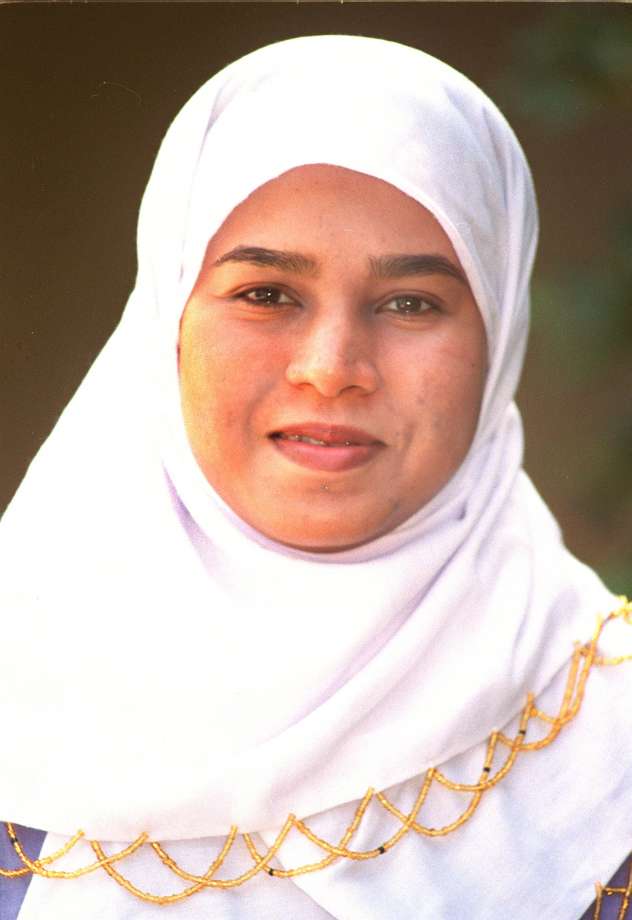
Chap. Shazeeda Khan
FORUM ON FAITH
Facing the test of the worldly life.
by Chaplan Shazeeda Khan
Published: Saturday, January 3, 2015
Danbury News Times
Scholar Ibn Taimiya said, "The complete recognition of God and having the proper love for Him cannot exist in the heart without having an overriding effect in outward deeds."
Trusting that all of God's decisions are beneficial to us as a source of spiritual elevation -- Ibn Taimiya says that strengthens us in navigating worldly challenges, sets our moral compass, and contributes to unprejudiced actions and reactions.
Prophet Mohammad (with peace) said: "Wondrous are the believers' affairs. There's good in all their affairs. When something pleasing happens, they express gratefulness, and that's good for them; and when something displeasing happens, they express endurance, and that's good for them."
The Prophet Ayoub/Job (with peace) -- who transcended his worldly conditions, whether in comforts or hardships -- taught us how to have integrity with our Lord. He exemplified just conduct. His ability to detach himself from eagerness and love for this world and finding balance, where the world is in the hand but not in the heart, was key in reaching such closeness to his Lord.
That's the challenge for Muslims -- to live in this world without its adornments becoming the end goal. In a sermon, the Prophet Muhammad said: "Don't curse this worldly life. It's a vehicle for the believer through which he can do good..."
It's possible that we may be defined by others, or even by ourselves, through our possessions or accomplishments. However, such a definition is superficial, based on perception which may not be grounded in reality of who we really are.
Prophet Ayoub was defined on that superficial level by his community, but that wasn't his reality. Quran: "Truly! We found him (Ayoub) patient. How excellent a worshipper! Verily, he was often in repentance to Us."
Commentary follows: Satan overheard a group of angels discussing Ayoub as "The best creature on Earth today, a man of noble character who displays great patience and always remembers his Generous Lord. He's an excellent model for worshippers. In return, his Lord has blessed him with long life and abundant riches, yet he never became arrogant or selfish; he feeds and clothes the poor and buys slaves to set them free. He makes those who receive his charity feel as if they are favoring him, so kind and gentle is he."
Annoyed by this, Satan concluded that Ayoub was an excellent worshipper only because God had given him so much. To prove Ayoub's sincerity, God tried Ayoub by taking away everything -- including all his wealth, his children, and his health.
After enduring this test for seven years, Ayoub's wife's frustration had reached its limits, but Ayoub's response to her was: "I'm ashamed to call on my Lord to remove the hardships, for I haven't suffered longer than the years of good health and plenty that I enjoyed." He admonished her for being tempted by Satan and told her to leave.
Ayoub, after seeing his last blessing leave, finally turned to God in supplication: "'Verily, distress has seized me, and You are the Most Merciful of all those who show mercy,' God answered his call, and removed his distresses." (Quran).
There are many takeaways from Prophet Ayoub's life: his privileges didn't lead him to any type of arrogance or injustice but rather to gratefulness, humility, generosity, and kindness. Acknowledging the station of his Lord, Ayoub didn't blame Him or question His decisions about the conditions he faced; when God tested him with prosperity, he was grateful, and when God tested him tribulations, he was patient and sought mercy.
Muslims understand that this worldly life is the testing phase, and we aren't promised a rose garden here. Quran: "We'll test you with something of fear, hunger, loss of wealth, lives and fruits, but give good tidings to those who patiently persevere when disaster strikes them, saying, `Indeed we belong to God, and indeed to Him is our return.' They are the ones to whom descend blessings from their Lord and mercy; it's those who are the guided."
When tested with ease or hardships, Muslims are commanded to actions and reactions that are thoughtful and measured -- reflecting a sense of justice and integrity. Brutality, oppression, or disenfranchisement aren't actions pleasing to God. Living in a false reality is no excuse for injustice, as God has provided us with adequate information to know reality -- as well as laws and examples of how to live within the boundaries decreed.
Chaplain Shazeeda Khan is the Director of Islamic Education, Baitul Mukarram Masjid of Greater Danbury, 339 Main Street, Danbury, CT 06810. She can be reached: shazeedak@charter.net.